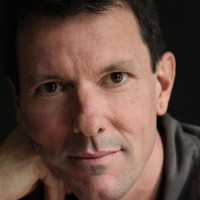Twelve years ago, two gay friends of mine had just taken their seats on a plane in Texas to bring home their newly adopted baby girl, when a man wearing a cowboy hat, boots and a shiny belt buckle came walking down the aisle. He stopped beside the two dads and their daughter and signaled that he was in the window seat beside them.
Once the passenger took his seat, he gazed at the baby girl, who was asleep on her daddy's chest, and said in a deep drawl: "That's the best feeling in the world, isn't it?"
The Texan surprised my friends that day. But they likely have been even more surprised by the softening attitudes toward gays in America over the past few years. The majority of Americans now believe that gays should be allowed to marry. In two legal cases to be argued in the coming days at the Supreme Court, we may find out whether the majority of justices believe the same thing.
In this changing culture, opponents of same-sex marriage have had to moderate the way they express their opposition. They are not against gays or gay rights, some now say. They are for traditional marriage. Indeed, the 2012 Republican Party platform used the language "preserving and protecting traditional marriage."
Tradition. It's a beautiful word and a wonderful thing. Tradition is how we receive the wisdom and values and customs of our elders. It's how we pass them on to our children. Tradition gives us a sense of stability, identity, continuity. There is much that is good and sacred about tradition. So it is clever of same-sex marriage opponents to describe one-man/one-woman marriage as "traditional marriage."
Yet societies have many traditions, and they shape one another. Marriage did not emerge in isolation. The tradition of marriage was shaped by other traditions — including a long and deep historical tradition of demonizing and ostracizing gays. Traditional marriage was formed and shaped in part by the tradition of hating homosexuals.
Opponents of same-sex marriage will dispute that. They will say they oppose same-sex marriage because couples cannot reproduce. (Yet they don't object to marriage for heterosexual couples who cannot reproduce.)
They will say they oppose same-sex marriage because traditional marriage is better for children. (Yet they don't say how it would harm a child if her gay parents got married.)
They will say they oppose same-sex marriage because same-sex relationships are not stable. (But how is it fair to compare the relationships of people who can marry with the relationships of people who are not allowed to marry?)
Finally, they will say they're opposed to same-sex marriage because homosexuality is immoral. Jim Daly, head of Focus on the Family, recently said: "We've said we hate the sin and love the sinner. But when you peel it back, sometimes we hated the sinner, too. And that's not the Gospel."
But do they hate homosexuality because it is a sin, or do they call it a sin because they hate it?
If you take away the hatred of gays, the opposition to same-sex marriage falls apart.
Sen. Rob Portman, R-Ohio, recently made news by declaring his support for same-sex marriage — a change triggered after his son told him he is gay. Portman said, "It allowed me to think of this issue from a new perspective, and that's of a dad who loves his son."
What was Portman's position before love came into it? He was a staunch opponent of same-sex marriage. Then he realized he loves a man who is gay, so he changed his position on gay marriage. This is the story of the fast collapse of opposition to same-sex marriage in America. First, people lose their antipathy to gays, and then they lose their opposition to same-sex marriage.
It's increasingly clear. This issue, at its core, is not really about morality or what benefits children and society. It is about how you feel about "those people." Ultimately, you cannot deny rights that you have to others unless you look down on the others. That is what has sustained traditional marriage in its current form for thousands of years — institutionalized contempt for those who love in a different way.
As government lawyers are forced to defend the constitutionality of gay marriage bans at the Supreme Court, a famous quotation of Thomas Jefferson's — carved into his memorial in Washington — has fresh salience:
"I am not an advocate for frequent changes in laws and constitutions, but laws and constitutions must go hand in hand with the progress of the human mind. As that becomes more developed, more enlightened, as new discoveries are made, new truths discovered and manners and opinions change, with the change of circumstances, institutions must advance also to keep pace with the times."
Tom Rosshirt was a national security speechwriter for President Bill Clinton and a foreign affairs spokesman for Vice President Al Gore. Email him at [email protected]. To find out more about Tom Rosshirt and read features by other Creators Syndicate writers and cartoonists, visit the Creators Syndicate Web page at www.creators.com.






View Comments